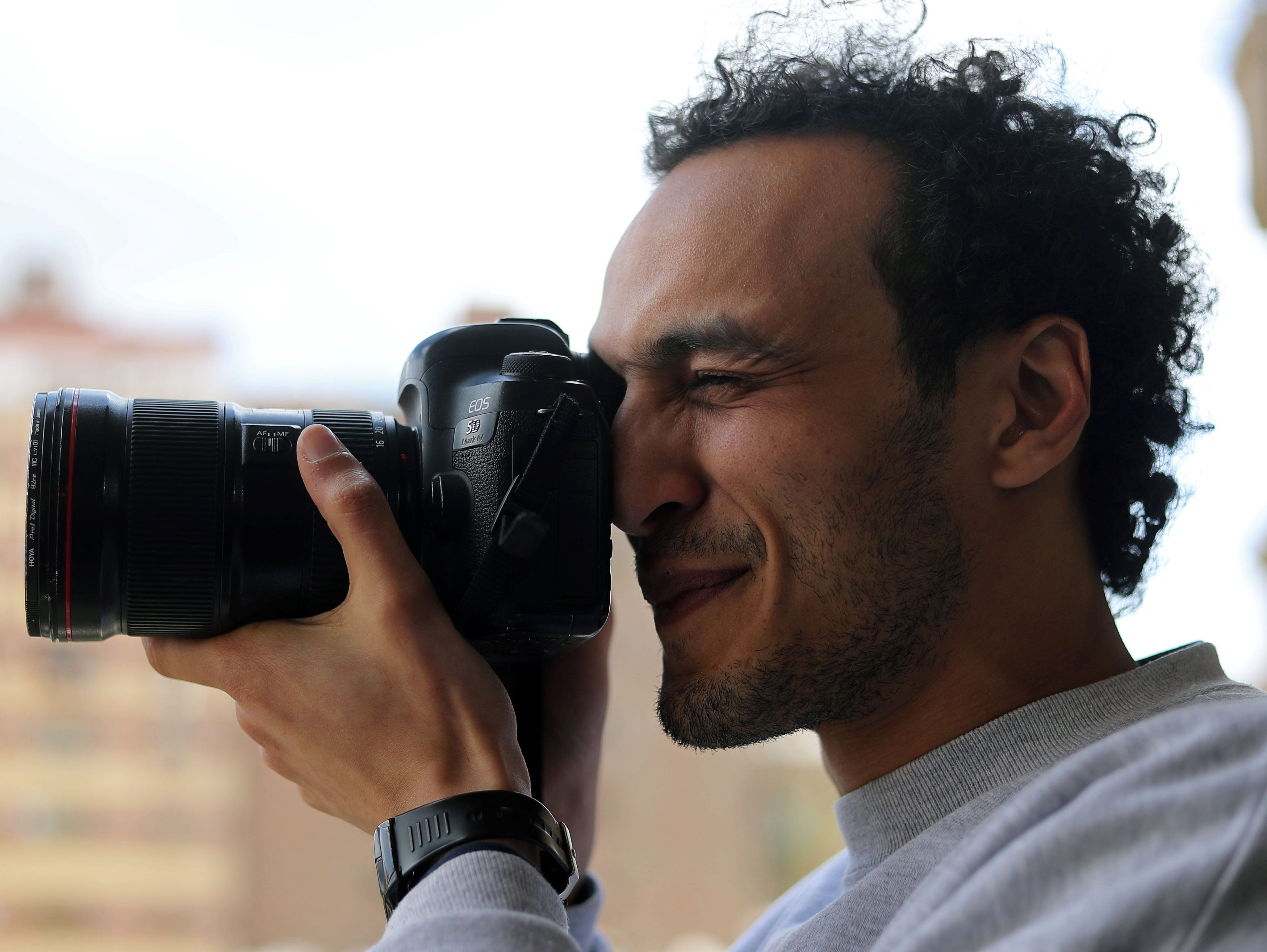
A prominent Egyptian photojournalist has been released after five years in prison, pledging to continue working despite having to spend his nights at a local police station.
Mahmoud Abu Zaid, popularly known as Shawkan, was convicted of involvement in a 2013 sit-in protest by Islamists that was broken up by security forces in an operation that left hundreds dead.
Egypt, under President Abdel-Fattah el-Sissi, has launched an unprecedented assault on reporters and the media in recent years, imprisoning dozens and occasionally expelling some foreign journalists.
Shawkan was taking photos at Rabaa Al-Adawiya Square in Cairo where Muslim Brotherhood supporters had staged a sit-in protest to denounce the removal and detention weeks earlier by the military of the country’s freely elected but divisive Islamist president Mohammed Morsi.
“I was heading out to take photos. I come back to my home after five years,” the 32-year-old said at his home in the Cairo neighbourhood of Fisal, shortly after his release.
“I feel like I was born again, I feel relieved,” said his mother, Reda Mahrous. “I used to stay awake at night thinking, telling myself that Mahmoud will come back today or tomorrow.”
An Egyptian court ordered Shawkan’s release last September after he had served his term, but he remained behind bars for an additional six months in lieu of paying a fine for property damages incurred during the Rabaa Al-Adawiya crackdown.
Shawkan said he has to report to the nearest police station and spend every night there from 6pm to 6am for the next five years because he has been remanded under “police observation”.
He is also prohibited from managing his financial assets and property for the five years.
Amnesty International called such measures “outrageous” and said they “should be lifted immediately”.
“Mahmoud Abou Zeid has been the victim of an appalling injustice and the authorities must offer full reparation for this outrageous violation of his human rights,” said Amnesty’s Najia Bounaim.
Sophie Anmuth, head of the Middle East desk at Reporters Without Borders, said: “Shawkan must now recover his complete freedom, not just 12 hours a day.
“A first battle has been won and we thank all those who joined in our efforts to get him freed. The campaign will continue as before, not just during Shawkan’s appeal but also to press for the release of the more than 30 other journalists detained in Egypt because of their work.”
Despite the restrictions, which are under appeal, Shawkan said he would continue working as a photojournalist.
“I am not the first or the last journalist to be detained,” he said.
The Committee to Protect Journalists welcomed his release and urged Egyptian authorities to “end their shameful treatment of this photojournalist by removing any conditions to his release”. Shawkan was honored with CPJ’s International Press Freedom Award in 2016.
“We are relieved to hear that Shawkan is finally free,” said Sherif Mansour, CPJ’s Middle East and North Africa co-ordinator. “The Egyptian government should take steps immediately to improve its image, which has been badly tarnished by this unjust imprisonment.”
Egypt remains among the world’s worst jailers of journalists along with Turkey and China, according to CPJ. In December, CPJ’s annual prison survey found that at least 25 journalists are in prison in Egypt, and the country leads the world for charging journalists with publishing false news.
Since 2013, El-Sissi has overseen the biggest crackdown on critics in living memory, jailing thousands of Morsi supporters as well as some of the activists behind the 2011 uprising that toppled former autocratic president Hosni Mubarak.
Picture: Reuters/Mohamed Abd El Ghany
Email pged@pressgazette.co.uk to point out mistakes, provide story tips or send in a letter for publication on our "Letters Page" blog
